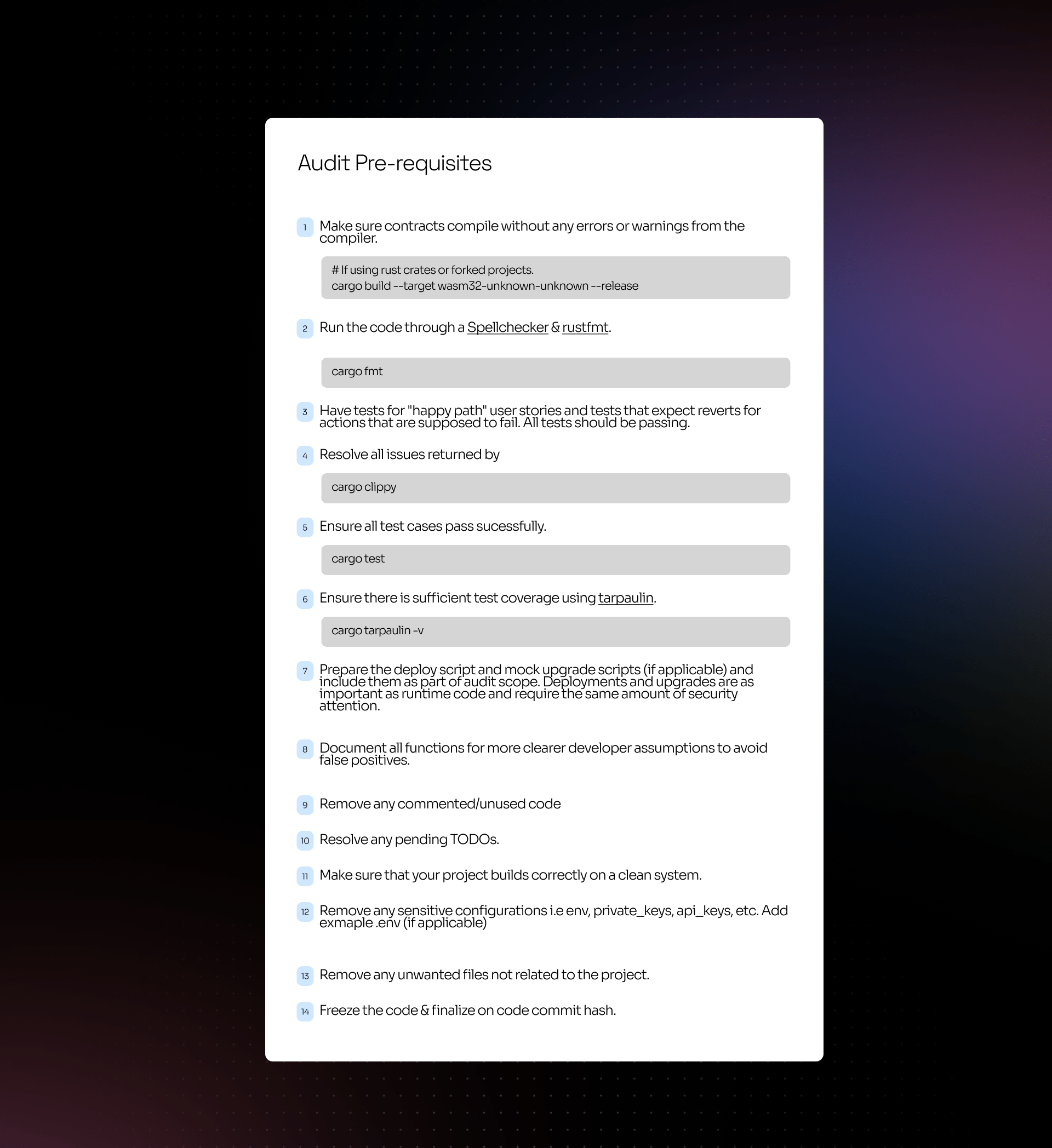🚀 Audit Portfolio Dashboard is Live
Security
Explore Audit
Portfolio

🚀 Audit Portfolio Dashboard is Live

ICP Smart Contract
Audit
Our team of ICP Smart Contract Auditors is committed to delivering cutting-edge ICP smart contract audits, ensuring top-tier security and optimal performance for your ICP project. Our auditors stay updated with the latest Motoko and Rust coding standards through active collaboration within the ICP ecosystem.



Benefits Of ICP Smart Contract Audit


Our audit team works in silos, tackling your code from different angles without influencing each other. At the end, we bring all the pieces together for unbiased results. No bias, no stone left unturned, just top-notch security findings.

We don’t just focus on code. We bring together economics, philosophy, finance, and computer science to solve your toughest problems. It’s like having a whole think tank dedicated to your project’s security.

The Smart Contract Audit Process is initiated with code freeze and gathering documentation i.e., codebase, whitepaper, etc. to give us a clear picture of your project.
We use industry-leading Smart Contract Auditing Tools to analyze your code for vulnerabilities across different blockchain languages.
When do your
ICP Smart contract need the Audit?
Reentrancy vulnerabilities occur when state changes before an inter-canister call assume unchanged states on callback, allowing attackers to manipulate global states.
Rollback behavior inconsistencies can leave canisters in unexpected states. Traps roll back changes, while exceptions do not, risking data integrity.
Interaction with untrustworthy canisters risks response manipulation, causing traps through invalid Candid data or deadlocks via withheld responses.
A canister failing to serialize its state during an upgrade becomes unupgradable, risking permanent data loss and functional stalling.
Denial-of-service attacks can deplete a canister’s cycle balance, disrupting service availability and causing operational failures.
The duration of an ICP smart contract audit depends on the complexity of your project. Typically, the process can take anywhere from one week to several weeks. We work closely with your team to establish a clear timeline and ensure timely completion.
Yes, we provide detailed guidance and support to help you fix the identified issues. Our team works with you to ensure that all vulnerabilities are addressed and that no new issues are introduced during the remediation process.
BlockApex is a leader in blockchain security, with extensive experience in the ICP ecosystem. Our comprehensive approach combines automated tools and manual reviews to provide thorough and reliable audits. We prioritize both security and performance optimization, ensuring your project is secure and efficient.
After delivering the final audit report, we remain available for any further assistance you might need. We can conduct follow-up reviews to verify the implementation of fixes and provide ongoing support to ensure your project's continued security.
The cost for an ICP smart contract audit typically ranges from $7000-$25,000 for a standard audit. For a more thorough examination involving formal verification, the price generally falls between $15,000-$35,000. The exact cost can vary based on the complexity and scope of the project.







